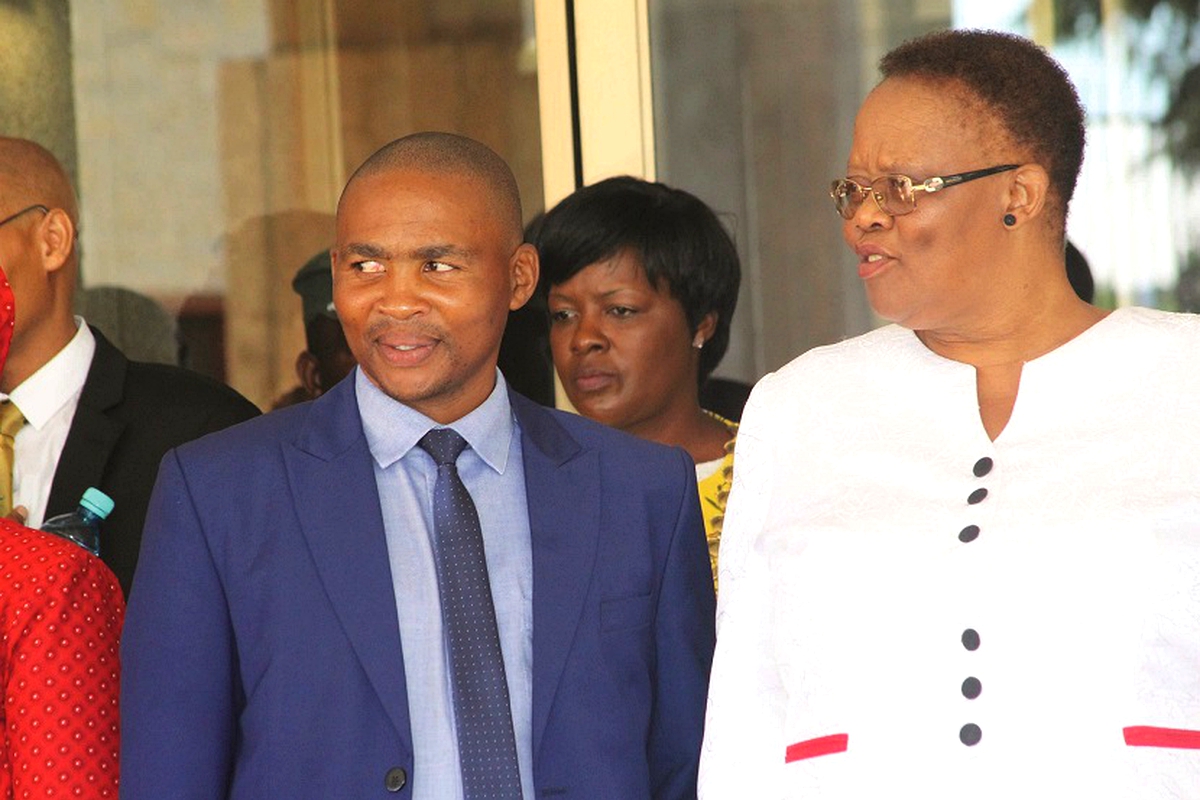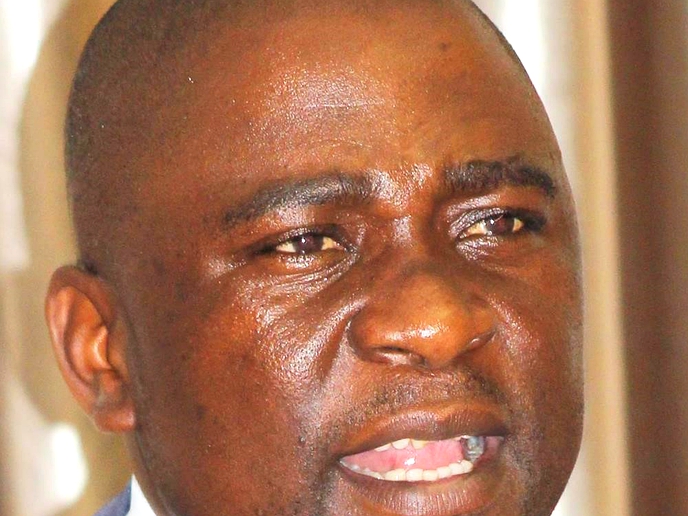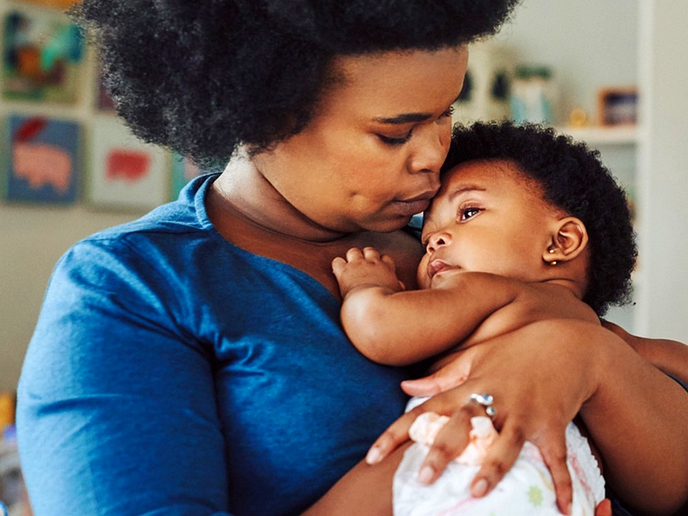ACCRA, Ghana – Basotho societal structures should break the silence shrouding infertility and sterility in both women and men, while instantaneously advocating for reproduction through technology to mitigate childlessness and the stigma it carries.
health
Nov. 11, 2019
TEBOHO KHATEBE MOLEFI
5 min read
Minister backs alternate reproduction methods

Deputy minister Motoboli (in White) in a file picture
This is a submission of deputy minister basic education, ’Maphoka Motoboli, who argues it is vital that society should, from an early age, be sensitised on the causes of infertility – disintegrating widely held untruths that fuel stigma and the abuse of women who cannot bear children.
Speaking to this reporter on the sidelines of the sixth edition of the ‘Merck Africa Asia Luminary’ held in Accra, Ghana, beginning October 29 to 30 Mrs Motoboli urged the Basotho to adopt choices brought forward by modern technological leanings while also leading healthy lifestyles conducive to a good reproductive life.
The minister singled out egg fertilisation outside the womb as one of the best methods through which infertile couples could be assisted to conceive and bear children.
The Accra assembly was hosted by the government of Ghana and co-chaired by Rebecca Akufo-Addo, the First Lady of the Republic of Ghana and Dr Rasha Kelej, Merck Foundation CEO.
Merck Foundation is the philanthropic arm of Merck, which aims to improve the health and wellbeing of people and to advance their lives through science and technology.
The conference was attended by 58 countries from across the globe, with African First Ladies and health, gender and education ministers from 20 African countries; over 1,000 participants drawn from the academia, researchers, policy makers, health care practitioners, medical specialists and the media participated in the discussions.
A Lesotho delegation headed by the minister in the prime minister’s office, Tšehlo Ramarou, Minister Motoboli, ’Maesaiah Thabane Trust Fund director Keneuoe Machela, programme’s manager in the Office of the First Lady Monaheng Monyane and media representative Lebohang Maketa represented Lesotho’s First Lady, Dr 'Maesaiah Thabane, in the meeting – Dr Thabane has recently been appointed Merck Foundation’s ‘More than a Mother’ programme ambassador in the country.
The campaign aims to demystify infertility using the media, arts, fashion and theatre and kick started in the country recently with the training of media practitioners drawn from across media houses in Lesotho.
Enjoy our daily newsletter from today
Access exclusive newsletters, along with previews of new media releases.
The Accra meeting also celebrated the second anniversary of Merck Foundation.
The inaugural sessions commenced with the visiting First Ladies holding a high level panel where they presented country reports and discussed challenges and solutions to break stigma around infertile women and interventions to empower them through access to information, health and change of mindset in Africa.
A scenario minister Motoboli noted, in a Metro interview, Lesotho was no exception as despite enactment of relevant legislations, women continued to be perceived as minors by society.
“Women are chiefly viewed by our society as baby makers, a role whose failure to perform lands puts them in the face of hostility and abuse from their families. The entire blame is laid on the woman alone.
“There are also constant threats of divorce and the whole society accepts polygamy if a wife cannot bear children; in some cases even adultery is condoned, which in turn leads to sexually transmitted infections, distress, depression, low self-esteem, self-blame and guilt – in most cases women bear this blame even without medical verification,” minister Motoboli elaborated.
The second day of deliberations focused on scientific sessions designed to serve unmet healthcare needs in the African continent, with special focus on disease prevention and early detection as well as nutrition awareness.
Focus was also put on the networking of healthcare providers, academia and medical faculty members to exchange knowledge and experiences and engage in an open dialogue to explore the educational gaps, develop and implement comprehensive control and prevention programmes that will improve the overall access to healthcare in Africa, Asia and beyond through the successful implementation of the various Merck Foundation programmes.
Per the 2016 national report, Lesotho has a total population of 2 007 201, and the total fertile rate in the country stands at 3.3 children per woman, with childbearing peaks at age 20 to 24 (181 births per 1,000 women), dropping steadily thereafter.
According to the country’s Demographic and Health Survey of 2014, rural women have 1.6 more children on average, more than the total fertility rate that is recorded at 3.9 versus 2.3 children.
The number of children a woman bears generally decreased as her education level increases, and women with some primary education or who completed primary education have, on average, 1.6 more children than women with more than secondary education.
Women in the lowest wealth quintile have more than twice as many children, on average, as women in the highest quintile. The median birth interval in the country is 45.8 months, with 11 percent of all children in Lesotho born within 24 months of a previous birth.
In Lesotho, 19 percent of women aged 15 to 19 have begun childbearing; 15 percent have given birth and an additional four percent are pregnant with their first child.
Teenagers in rural areas are more likely to begin childbearing than their urban peers, with 23 percent of rural teenagers having had live birth or are pregnant – compared with 12 percent of urban teenagers.
Teenage childbearing is less common in the wealthiest households, and teenagers in the lowest wealth quintile are about five times as likely to have started childbearing by the age 19 as those in the highest quintile.
And Minister Motoboli says cognizant of these national statistics, the trauma that infertile women go through is immense and heartbreaking, adding “they are looked down upon and ridiculed by souses and in-laws who are eager to see their off-springs whom they believe will shoulder the family legacy.”
“In Lesotho an infertile woman is not only banned from participating in social activities but also from participating in and contributing to a meaningful life; they are viewed as a burden on the socio-economic wellbeing of a community, and this has to stop,” she continued.
The minister concluded by encouraging women to avoid smoking as it aged one’s ovaries, to stay away from illicit drugs, cut down on alcohol and caffeine intake – factors she said were linked to lower infertility, appealing for a moderately active lifestyle and maintenance of healthy weight.
Tailored for you






